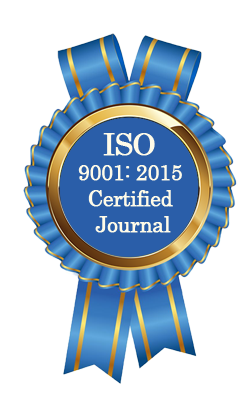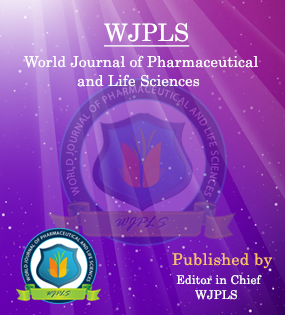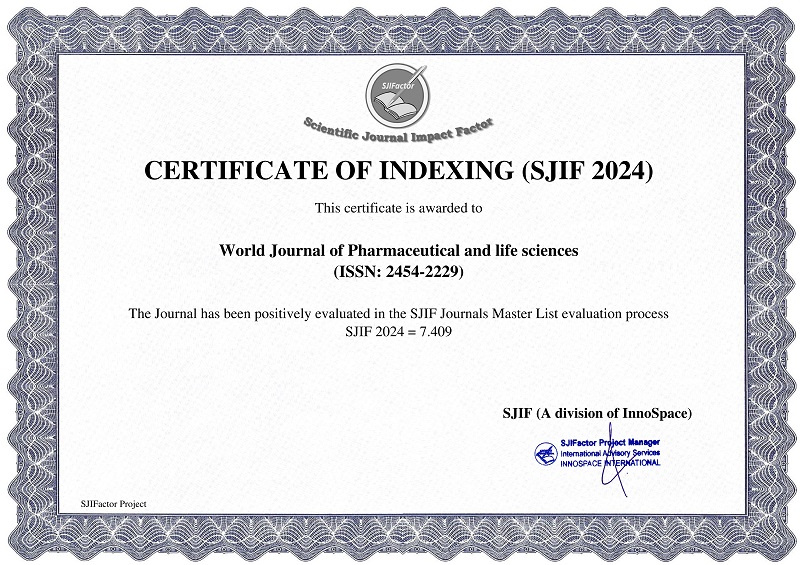Abstract
A CRITICAL REVIEW OF TULSI - OCIMUM SANCTUM
Dr. Pritish Shantaram Naik*
ABSTRACT
Medicinal plants are an significant part of human history, philosophy and practise. The theme of medicinal plants is highly active arena of systematic study all over the world. Medicinal plants and plant derivate are broadly used in traditional cultures globally and they are becoming progressively popular in contemporary society as ordinary alternatives to synthetic chemicals. Normal products and their offshoots represent more than 50% of all drugs in clinical use. World health organization (WHO) has supported the estimation of therapeutic potential of plants for diseases where we lack safe allopathic drugs. Ocimum sanctum described as sanctified and medicinal plant in ancient literature, commonly known as Tulsi is consequent from „Sanskrit?, which means "the incomparable one". This plant belongs to the family Lamiaceae which is native throughout the Old World tropics and cultivated for religious and medicinal purposes. Several medicinal properties have been recognized to the plant not only in Ayurveda and Siddha but also in Greek, Roman and Unani. It is widely known across South Asia as a medicinal plant and an herbal tea. The chemical constituents isolated from various parts of the plant contain eugenol, cardinene, cubenol, borneol, linoleic acid, linolenic acid, oleic acid, palmitric acid, steric acid, Vallinin, Vicenin, Vitexin, Vallinin acid, Orientin, Circineol, Gallic Acid, vitamin A, vitamin C, phosphorous and iron. Ocimum sanctum has been shown to possess multifarious medicinal properties such analgesic activity, anti-ulcer activity, immunomodulatory activity, Tulsi has got the great medicinal value. Studies have also revealed Tulsi to be effective for diabetes, by reducing blood glucose levels. The same study showed significant reduction in total cholesterol levels with Tulsi. Another study showed that Tulsi's beneficial effect on blood glucose levels is due to its antioxidant properties. The Rama Tulsi is the effective remedy for the severe acute Respiratory Syndrome. Juice of its leaves gives relief in cold, fever, bronchitis and cough. Tulsi oil is also used as the ear drop. Tulsi helps in curing malaria. It si very effective against indigestion, headache, hysteria, insomnia and cholera. The fresh leaves of Tulsi are taken by the millions of people every day.
[Full Text Article] [Download Certificate]WJPLS CITATION 
| All | Since 2020 | |
| Citation | 590 | 424 |
| h-index | 12 | 10 |
| i10-index | 17 | 14 |
INDEXING
NEWS & UPDATION
BEST ARTICLE AWARDS
World Journal of Pharmaceutical and life sciences is giving Best Article Award in every Issue for Best Article and Issue Certificate of Appreciation to the Authors to promote research activity of scholar.
Best Article of current issue
Download Article : Click here





